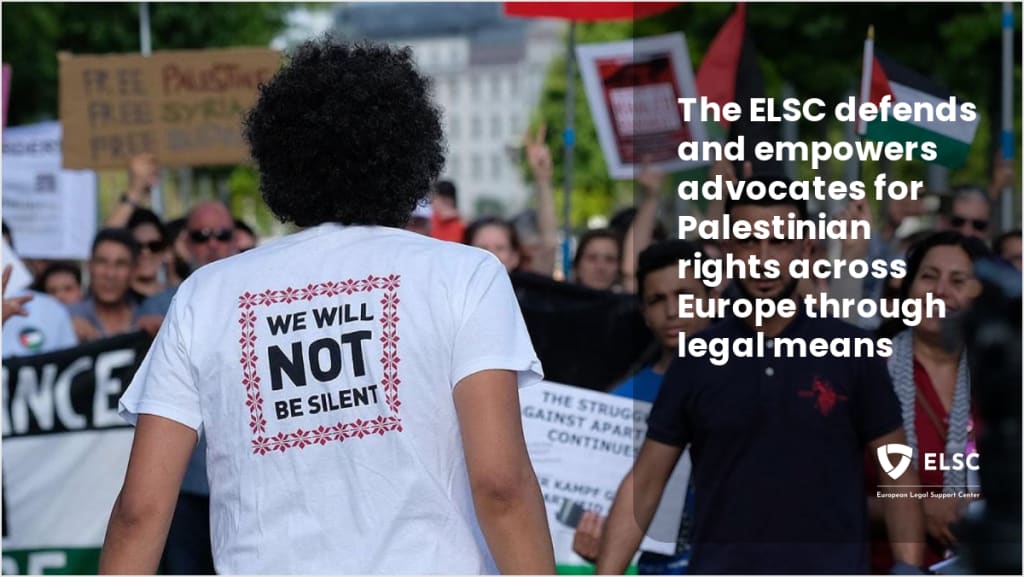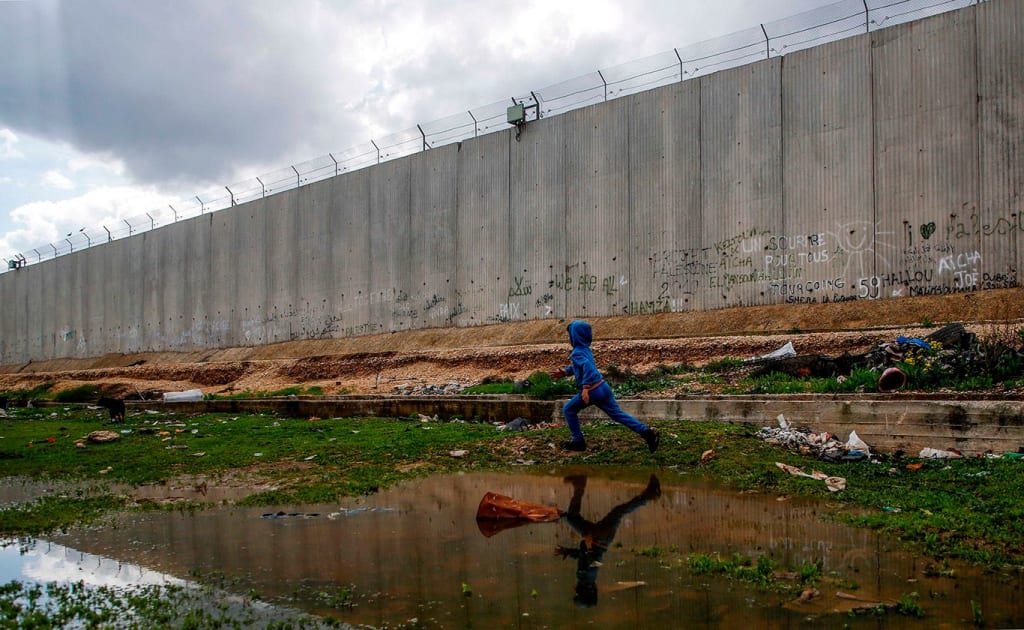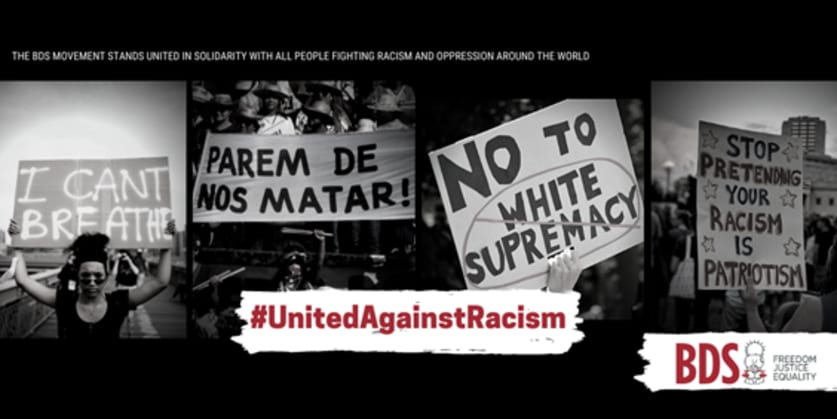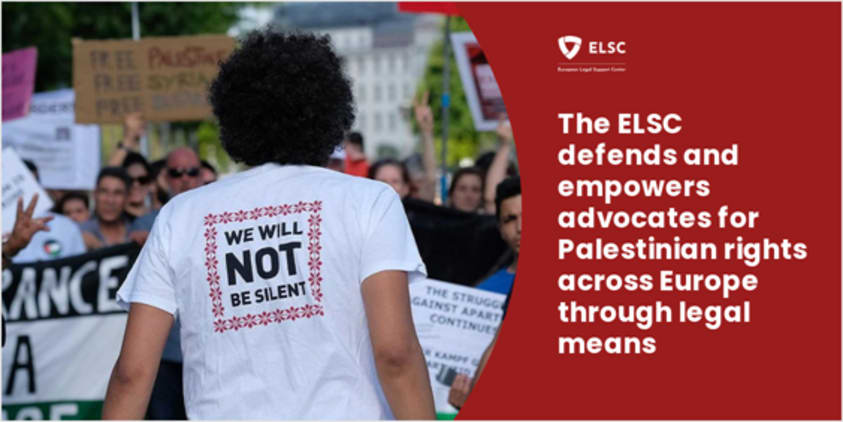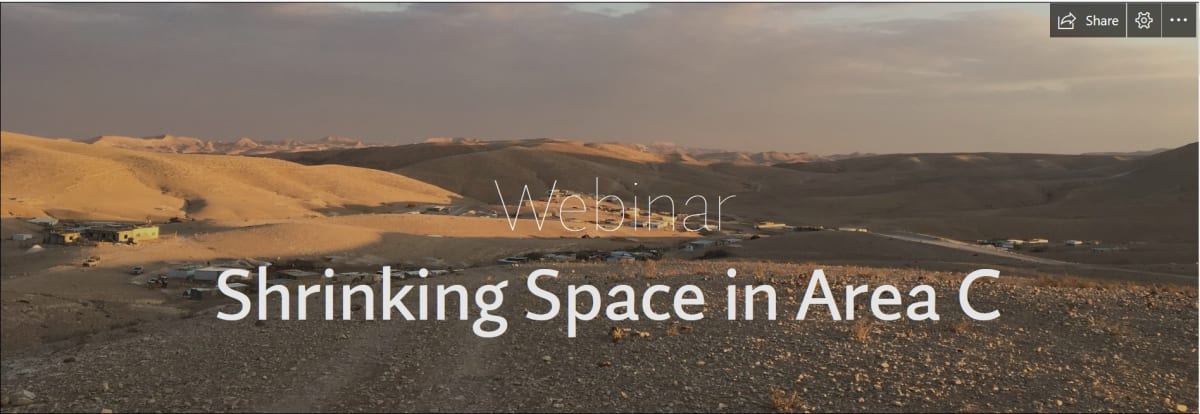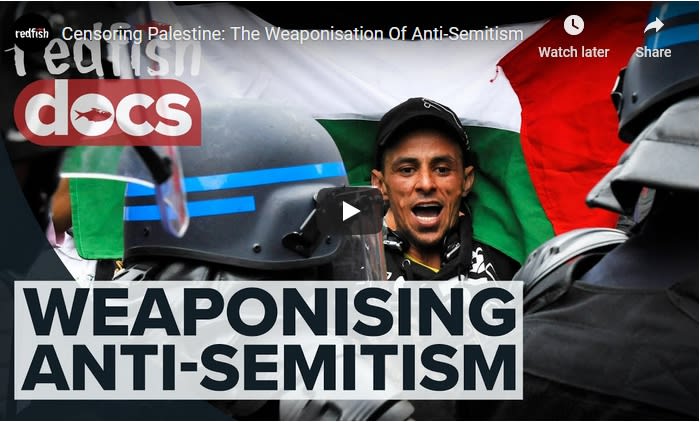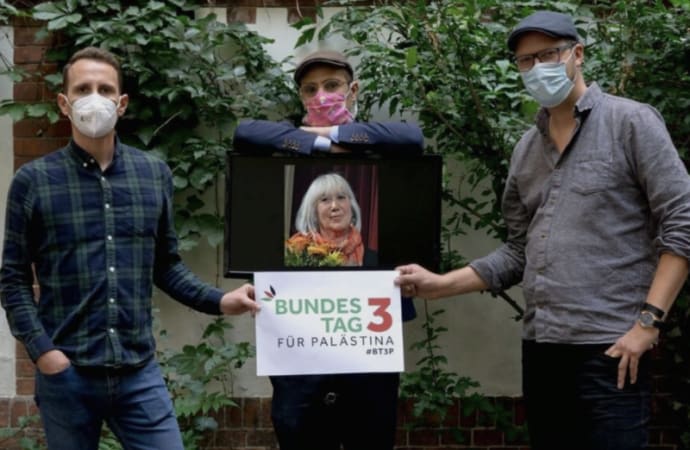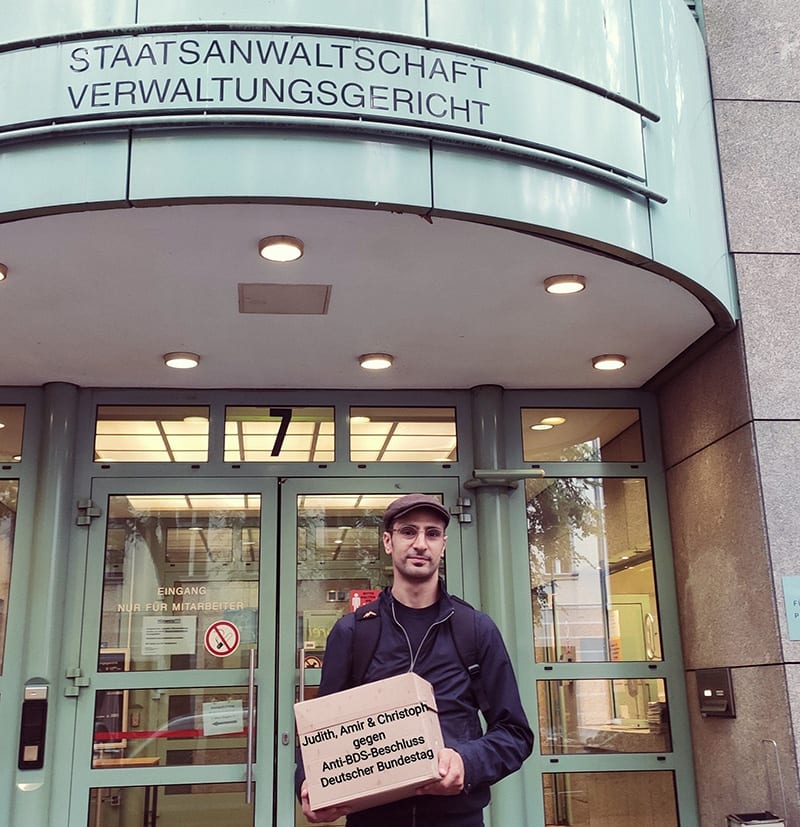Thursday 11 June 2020 marked a decisive victory for freedom of expression of Palestinian rights defenders in Europe. The European Court of Human Rights Court (ECtHR) rendered its judgement, unanimously ruling that the French highest court’s criminal conviction of BDS activists campaigning for a boycott of Israeli products violated their freedom of expression, protected by article 10 of the European Convention on Human Rights.
In 2009, 11 campaigners advocating for Palestinian rights were charged with ‘incitement to economic discrimination’ under an anti-discrimination law of 1881 for distributing leaflets in supermarkets in eastern France calling for the boycott of Israeli goods. They were sentenced with a suspended fine of €1,000 and €7,000 in damages in 2013 and France’s highest appeals’ court upheld the convictions in 2015, positioning the country as the only democracy where the call for a boycott by a citizens’ movement to criticize the policies of a third state is prohibited.
The ECtHR ruling provides that “the Court considered that the applicants’ conviction had lacked any relevant or sufficient grounds,” and that the call to boycott is a citizen’s right, a legitimate tool of protest, as long as it is motivated by criticism of a state and its policies. Therefore, it is not in itself discriminatory and should be considered in the light of all the circumstances.
Moreover, the court stresses that the respect of international law by Israel and the human rights violations in the occupied Palestinian territory are subjects of general interest, part of a contemporary debate, open in France and throughout the international community.
In addition to the judgement, Judge O’Leary expressed a partly dissenting opinion arguing there is also a violation of article 7 of the European Convention on Human Rights (no punishment without law) as claimed by the applicants since they were convicted on the basis of section 24(8) of the Law of 29 July 1881 on freedom of the press of ‘incitement to economic discrimination’, whereas that law doesn’t cover economic discrimination.
This ECtHR decision is a clear message to all European states that are misusing anti-discrimination laws to target peaceful activists campaigning against human rights violations perpetrated by Israel. The BDS movement is beyond any doubt an anti-racist and anti-discriminatory movement pursuing a legitimate human right agenda for Palestinian freedom, justice and equality.
Here are the best quotes from the judgement:
It is undisputed that a call for a boycott of Israeli products falls under the right of freedom of expression protected by article 10 ECHR.
1. “The applicants’ conviction amounted to an “interference” with their freedom of expression. Moreover, this aspect did not give rise to any controversy between the parties.” (§58)
2. “The boycott is above all a means of expressing an opinion of protest. The call for a boycott, which aims to communicate those views while also calling for specific actions linked to them, therefore falls within the scope of the principle protected by Article 10 of the Convention.” (§63)
3. “The call for a boycott is, however, a special modality of exercising freedom of expression in that it combines the expression of a protesting opinion and encouraging differential treatment so that, depending on its circumstances, it may to constitute a call for discrimination of others. The call for discrimination falls within the scope of the call for intolerance, which, together with the call for violence and the call for the hatred, is one of the limits not to be exceeded under any circumstances in the context of the exercise of freedom of expression (see, for example, Perinçek, cited above, § 240) However, incitement to differential treatment does not necessarily amount to incitement to discriminate.” (§64)
4. “On the other hand, the applicants obviously sought to provoke or stimulate the debate among consumers in supermarkets by carrying out the actions calling for a boycott that led to the prosecution they denounce before the court.” (§70)
5. “The Court goes on to observe that the applicants have not been convicted for uttering racist or antisemitic remarks or for calling for hatred or violence. Nor have they been convicted for violence or for causing damage during the events of the 26 September 2009 and 22 May 2010. It is also very clear from the record that there was no violence or damage. The hypermarket in which the applicants carried out their actions, moreover, were not a party to the civil proceedings before the domestic courts.” (§71)
Political discourse, such as BDS, is matter of general interest and is essential in a democratic society.
6. “In other words, the internal [French] judge did not establish that, with respect to the circumstances of the case, the applicants’ conviction on the grounds of their call for a boycott of products from Israel was necessary, in a democratic society, to achieve the legitimate aim pursued, namely the protection of the rights of others, in the sense of the second paragraph of Article 2(2) of the Convention paragraph of Article 10.” (§77)
7. “A detailed motivation, however, was all the more essential in this case where Article 10 of the Convention requires a high level of protection of the right to freedom of expression. On the one hand, the actions and comments of the applicants concerned a subject of general interest, that of the State of Israel’s respect for public international law and the human rights situation in the occupied Palestinian territories, and were part of a contemporary debate, open in France as well as in the entire international community. On the other hand, these actions and statements were political and militant. The Court has repeatedly pointed out that Article 10-2 leaves little room for restrictions on freedom of expression in the area of political discourse or matters of general interest.” (§78)
8. “Political discourse by its very nature is a source of controversy and is often virulent. It is still in the public interest, however, unless it degenerates into a call for violence, hatred or intolerance. The latter is the limit that must not be exceeded. » (§79)
9. “The Court concludes from this that the applicants’ conviction is not based on relevant and sufficient grounds. It is not satisfied that the judge has applied rules that are in conformity with the principles enshrined in Article 10 and based on an acceptable assessment of the facts.” (§80)








